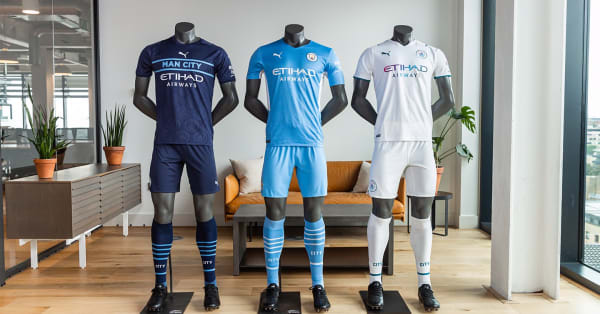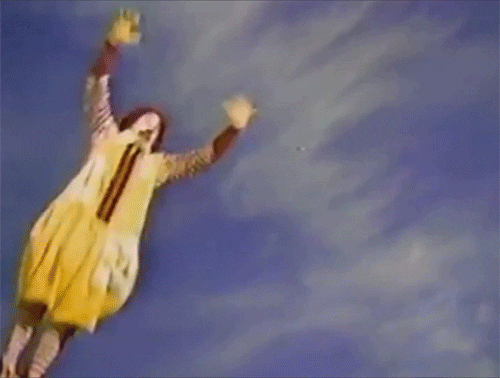Raducanu bad takes; Multi Club Ownership v McFootball; Moneyball 2.0; All eyes on Max Eisenbud; Stop marketing to bots; WeWork's network; Crypto (nearly) explained; Time flies in the US betting market
The newsletter of the podcast
Join the thousands of people who subscribe to Unofficial Partner.
We publish two podcasts each week, on Tuesday and Friday.
These are deep conversations with smart people from inside and outside sport.
This newsletter is our way of picking up the threads, and is published every Thursday.
Our entire back catalogue of 180 sports business conversations are available free of charge here.
Each pod is available on Apple, Spotify, Google, Stitcher and every podcast app.
If you’re interested in collaborating with Unofficial Partner to create one-off podcasts or series, you can reach us by replying to this email.
Whisper it, Leaders tickets are going fast
We’ve been helping promote Leaders Week in London Oct 5th-7th on the pod and in this newsletter. And it’s working. There’s a limit on places so you should use our offer sooner rather than later.
To get 15% off the full ticket price, go via the Leaders Week London website and use the code UnofficialPartner15
The Raducanu Bad Takes Hall of Fame
The desire to quantify is human but often leads to absurdity. An editor wants ‘the business angle’, the journalist goes in search of a number and the sports agency market sees an opportunity to get their name in the paper.
So we get:
Agent to the stars Jonathan Shalit, chairman of InterTalent, tells today’s Sun newspaper: “Emma is a phenomenon. She will be the highest-earning female UK sports star ever. If the trajectory Emma is on continues, she will earn well over £100 million.”
Or as my old mate Billy Mac put it:

A few days later, Adrian Chiles jumped on the wearily predictable second bounce of the story by coming out against money.
This tends to be the shape of the story when a new star takes the stage.
Coverage veers between ‘Emma’s worth a billion’ and ‘Business is bad, money will ruin her’.
Both are simplifications designed to lay a single opinion across the story in a few hundred words of copy, and in doing so seek to run from complexity.
But as ever, the complexity is the interesting bit. The questions that lie ahead for IMG’s Max Eisenbud and his team are fascinating because the incentives for the agent and the player only sometimes align. I remember Sir Nick Faldo talking about Rory McIlroy's mega deal with Nike: ‘Rory’s life didn’t change as a result of that deal. But his agent’s did.’
Then we jump to another simplification. Eisenbud was Sharapova’s agent and they made fortunes together and then she blamed him for her fall from grace.
So you can feel the story being pulled in that direction. What’s the difference between Emma and Maria? Is Raducanu just another cab off the rank for IMG or are they capable of bespoke approaches to fit the individual player?
Again, an old golf interview springs to mind. I asked Greg Norman why he broke from IMG and set up his own business: ‘They saw me as a pass through entity. I sensed their eyes were over my shoulder, always looking for the next big thing. And the next big thing was Tiger Woods’.
And on it goes.
‘I don’t write the headlines’: When journalism meets SEO
The Sunday Times’ early Kardashian reference was quickly taken down, possibly deemed a bit too Taboola*.
* Taboola and Outbrain, the two worst companies in the world, are merging
Multi Club Ownership or McFootball?
This week’s podcast has provoked a big reaction.
It’s episode seven of our Re:Thinking Sport series in collaboration with Portas Consulting and the guest was Paul Conway, head of Pacific Media Group, which owns seven European football clubs including Barnsley and the recently completed takeover of Dutch club FC Den Bosch, joining others such as AS Nancy in France, KV Oostende from Belgium, Denmarks’s Esbjerg.
Here are 8 things he said.
This is Moneyball 2.0 - I’d underestimated how central playing style was to the model. If you press, you need a manager who is committed to it, and players young enough to play it, and it sets parameters for the data analysts and narrows the type of players you can buy.
On the initial conversation with clubs:
We say, this is our strategy: We play with a young team. We believe in the academy, we balance our budget, we don't run up losses, we play with a high press and we use data to recruit players.
Do you share that vision? Then it's just like any other industry. If you do, we're there. We're your partner. If you don't, it doesn't work. That's what we do throughout Europe and just have these very direct conversations.
Managers are middle managers. The strategy is set in the boardroom. Managers are hired to carry it out.
There's a reason why most of our managers are German speaking because that (pressing) style of play is more ingrained in Austrian and German football. It's really hard for us to find a British manager that's dedicated to it. You can see sometimes a manager in England say, "Oh, this pressing, Man City and Liverpool's into it. I'm going to try it for a season". But then you can see in the data that they give it up, maybe after a season.
Barnsley is better value than an MLS franchise.
On relative ROI:
The sector will continue to consolidate mainly led by Americans. The only reason it's just Americans is because they just look at the value arbitrage from investing in the MLS, for example. The MLS the most recent transactions are 12, 13 times revenue. And we're investing in Europe at one times or less.
You can’t run a club over here from over there
On absentee American owners:
The biggest issue is they're not here and you can't run these businesses from afar. You lose your strategic vision. Sometimes you get your cash stolen. As simple as that. There's been multiple situations of Americans going into Italy and they don't own the players they thought they owned, but it all gets back to, if you're not there, it's probably going to go wrong.
Multi club is a Brexit backchannel
Many players want to come to England, but post-Brexit very few can. So we're using the multi-club model to improve our conversion rates on targets.
Brexit makes it much harder for British teams without a foreign club to bring players in from the continents. So that's why you see more and more Premier League and Championship clubs buying control of a French or Belgian team.
Because they think they can recruit European talent through those clubs. So it's just going to continue to give a strong advantage to multi club investors over single club investors.
The proposed Dutch-Belgium league ain’t gonna happen.
It's unlikely to happen. I'll just use the Belgium Holland example. You saw a lot of media and press from the Belgian side. It's the equivalent of the Belgium clubs saying, I want to announce that there's a party occurring in a year and we're excited about it. And then the Dutch side say, oh we didn't invite these guys to the party. Where these conversations usually fall apart is on the UEFA spots.
Belgium has five UEFA spots and Holland, I think, has five also. And so if you merge these two leagues, they're not going to have 10 UEFA spots. You maybe have six. And so here's two teams on both sides, not getting a ticket to Europe. That's where it usually falls apart. So I just really don't see much of this happening. It's not a horrible idea, but I just don't see this happening in Europe.
There’s not enough player data in women’s football to make the multi-club model work
Since we're data driven on the player investment side, the first step is there has to be really deep data on the performance in the women's game. And there's a little bit there, but there's not a whole lot. And so that has to improve to encourage a group like ours to focus more on it…we don't really know who to recruit from our model.
How do you maintain a competitive advantage when every club has the same player performance data?
The way we analyze our players is different than other groups.
The raw, basic data, anyone can subscribe to; you can get an Opta account and then get data on thousands of footballers. It's just a question of what do you do with that? So I think where we've gotten even more sophisticated probably over the last three years is we don't have physical scouts. We have analysts and they do scouting reports similar to what a physical scout would do. And we're really getting some really big improvements.
And some questions arising.
Is it good for the game?
Andy Holt, owner of Accrington Stanley FC calls it McFootball. Hear him in next week’s podcast.
Time flies in the US gambling market
Former CEO John Skipper recalls a conversation at ESPN about taking betting money.
Bloomberg: Were you surprised by the news that ESPN is looking to sell its brand for a gambling sponsorship?
John Skipper: It’s just amazing how quickly things changed. In 2015, we did a very big deal with DraftKings for advertising that at the same time was a big step forward. We had not been willing to be quite so overt and aggressive in even taking advertising. At the time we did that deal, Kevin Mayer and I recommended that we buy some of DraftKings and the company was uncomfortable doing so. I think Disney and ESPN are following the money and the social acceptance. The company was wise to be careful. But the world has moved and you combine that with the pressure of declining pay-TV universe. When revenue is challenged, the openness to do things that are slightly dodgy becomes more acceptable.
And he’s bullish on podcasts
I like the cut of this man’s jib.
What is a jib btw?
Skipper thinks the podcast advertising market will roughly double this year, reaching $1.5 billion to $2 billion, from $850 million in 2020.
He predicted the podcast market would grow to between $10 billion and $15 billion, as the $20+ billion terrestrial radio industry shifts over to podcasts.
Here’s hopin’.
Here’s an idea, target human beings
Regular UP guest Dr Augustine Fou has a chart that is pretty extraordinary.
It shows the basic adtech problem: There’s nobody at the other end.
All of this is purchased through programmatic, open exchange — it’s the same mix of crappy sites no matter what CPM prices you pay. (the x axis is CPM price of ads, the y axis is the proportion of humans to bots in the audience)
As we get further and further into the long tail, the percentage of sites that run ads gets smaller and smaller — down to about 1 in 10. That means most of the long tail sites don’t run ads. A small handful of “long tail sites” are fake or fraudulent sites, generating 100s of billions of ad impressions by fraudulent means — e.g. bot traffic, stacked ads, pixel stuffing, forced redirects, pop-unders, hidden ads, naked ad calls, etc. That’s what you’re buying when you buy large quantities at low prices - through programmatic channels.
Hear Dr Fou’s UP appearances from the archive:
Ep 129: How Adtech ruined the internet
Ep 178: Sport and the post-cookie internet
Ryder Cup captains, McGinley’s fish tank and the cliff scene from Butch Cassidy
I did a thing on attribution error for Radio 4.
Thread of the week


We shape our buildings, thereafter they shape us
Churchill was talking about the debating chamber in the House of Commons.
But the idea has a broader application, as explained in The Myth of the Infrastructure Phase by Nick Grossman and Dani Grant of Union Square Ventures.
And it helps explain the rise of crypto.
“The history of new technologies shows that apps beget infrastructure, not the other way around.”
Via the Not Boring newsletter.
First, builders build apps, then other builders build the infrastructure to support those apps, then that infrastructure supports new apps, which in turn requires new supporting infrastructure, and so on. That’s how it worked historically, from the lightbulb to the airplane to the iPhone, and it’s exactly what was happening in web3.
Enjoy the Unofficial Partner newsletter? Tell your friends
Subscribe to the Unofficial Partner podcast.
Help us game the Substack algorithm by liking this newsletter and spread the word on social media.
Follow @RichardGillis1 and @PaulPingles (aka the ill-judged Twitter handle of Sean Singleton, the UP co-founder).
Read over 100 gushing five star reviews for UP on Apple Podcasts - click the link to add yours.







